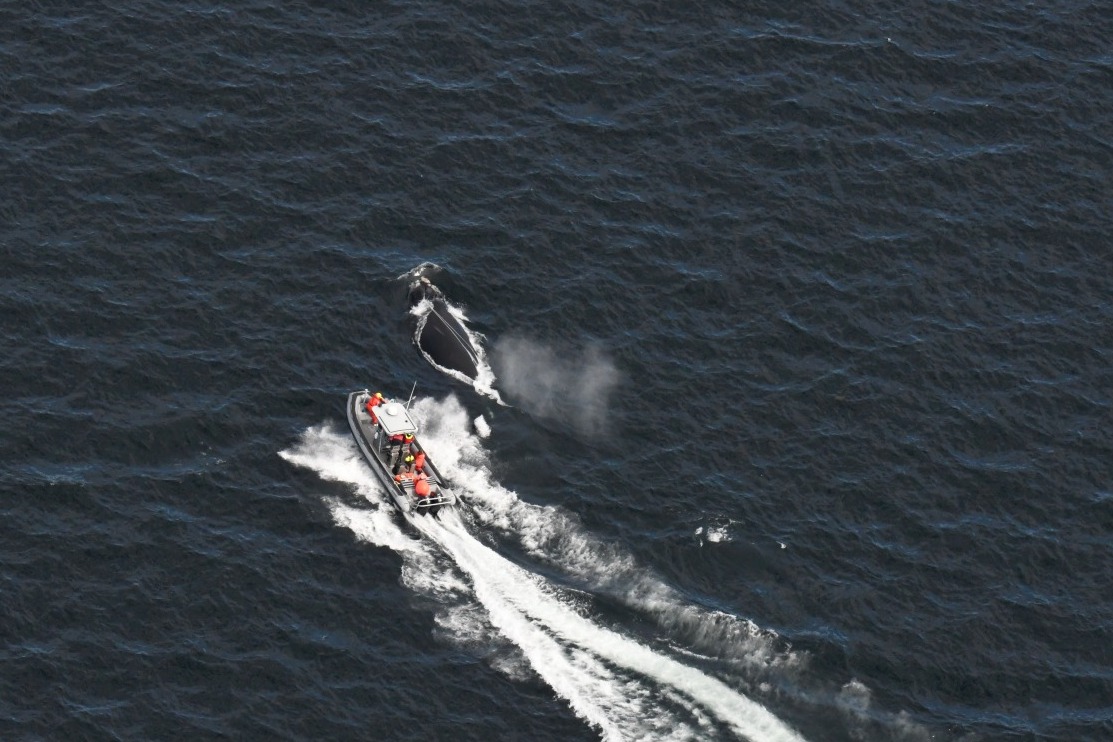
The Campobello Whale Rescue Team, on Scamper, our Rosborough Roughwater 9.11 rescue boat, working on disentangling Snow Cone, a 16 year old female North Atlantic right whale in the Gulf of St. Lawrence, on May 11, 2021.
Photo courtesy of DFO Science- Aerial Survey Team
Our Work
The goal of the Canadian Whale Institute is the long-term survival for endangered whales, particularly the North Atlantic right whale, in Canadian waters. Although whaling has ceased in most of the world, with the notable exceptions of Japan, Norway and Iceland, its legacy is one of decimated whale populations around the world. The surviving whales face growing threats, as our oceans become ever more industrialized, of entanglement in fishing gear, collisions with ships, acoustic interference, ingestion of plastics, and climate change induced loss of food supplies.
We are taking a three-pronged approach to address these issues.
First, acute, immediate threats are the focus of our whale disentanglement team and of our work to reduce whale-ship encounters in critical habitat areas (e.g. the WhaleAlert App and efforts to change marine policy).
Second, our education and stewardship activities seek to reduce these threats in the future. Our educational programs concentrate on increasing awareness and understanding of these issues within relevant industries, and among the general public.
Finally our research monitors trends over time, to identify factors that are influencing the ability of these populations to recover.
This approach is driving real change at all levels. Our work on immediate issues reduces the number of whales that are injured or killed by these encounters. Realistically, however, this is only a stopgap measure, to buy time, while we work to reduce these risks at a systemic level. We need to keep enough of the population alive and healthy so it is able to recover over time.
Our educational and outreach activities are changing this scenario, by raising awareness of the bigger-picture issues underlying these encounters, and by working with parties involved to reduce their occurrence in the first place. Lastly, our research efforts are directly helping to monitor the North Atlantic right whale population over time, assess the effectiveness of conservation actions, and understand what factors are influencing or hindering their recovery.
We will be successful once whale populations in Canadian waters recover to the point where they are removed from the Species at Risk Act. Perhaps most importantly, our goal is to achieve this not through enforcement of increasingly restrictive regulations, but rather through the development of shared solutions with all parties involved. The hope is that through all of our activities solutions can be achieved that serve the interests of industry, the general public, and the whales.
But none of this work is ours alone. It is only possible with the support, guidance and collaboration of many more individuals and organizations. Our collaborators page brings together the many companies, government entities, academic institutions and non-government organizations with which we work. We can't do it without you!